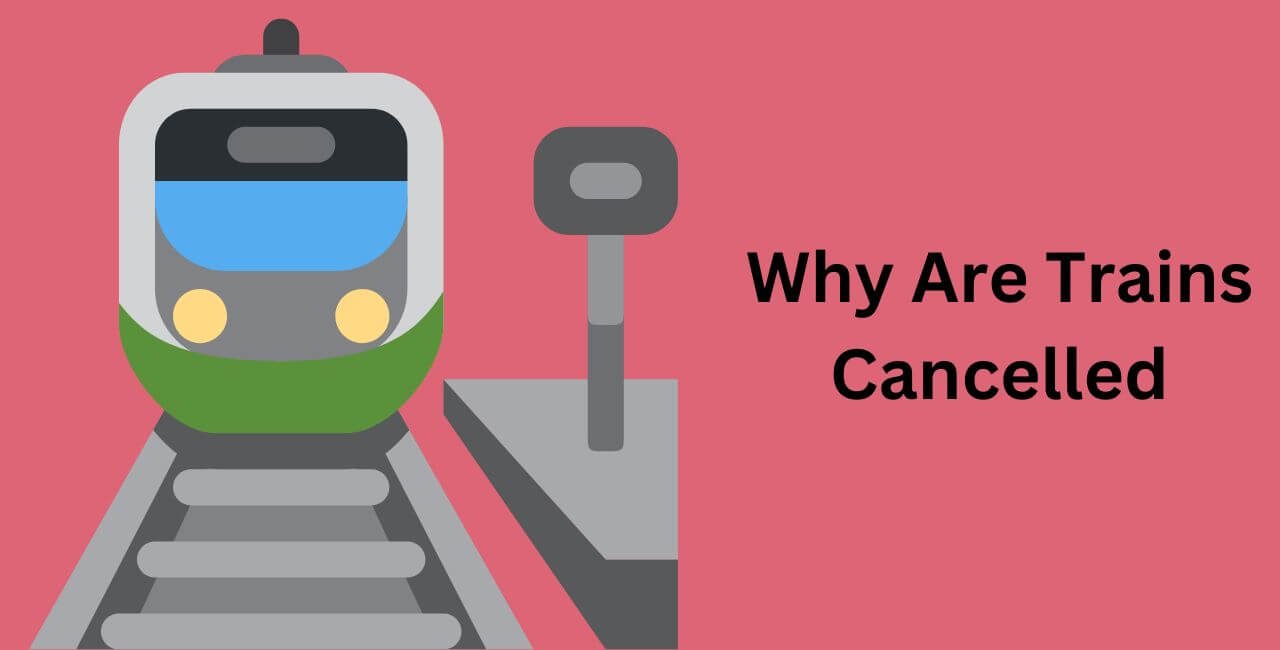Discover the common reasons why are trains cancelled and learn what steps you can take when your train is cancelled. Stay informed and prepared for your journey.
Trains can be cancelled for a variety of reasons, impacting travel plans for passengers. Here’s a look at the most common reasons for train cancellations and what you can do if your train is cancelled.
Common Reasons for Train Cancellations
Weather Conditions:
- Severe Weather: Heavy rains, floods, fog, snow, and storms can disrupt train services.
- Cyclones and Hurricanes: These can lead to extensive damage to railway tracks and infrastructure, necessitating cancellations.
Technical Issues:
- Engine Failures: Problems with the train’s engine or other critical components can cause cancellations.
- Signal Failures: Issues with railway signals can disrupt the scheduling and safety of train operations.
Track Maintenance:
- Scheduled Maintenance: Regular upkeep of tracks and infrastructure can lead to temporary suspensions of services.
- Emergency Repairs: Sudden damage to tracks, such as cracks or derailments, require immediate repairs and can cause cancellations.
Operational Reasons:
- Crew Shortages: Insufficient availability of trained staff or crew members can lead to the cancellation of services.
- Logistical Challenges: Issues like delays in previous journeys or rearrangements in train schedules can result in cancellations.
Security Concerns:
- Security Threats: Security threats can lead to the suspension of services to ensure passenger safety.
- Political Strikes and Protests: Agitations and strikes can disrupt train services.
Pandemics and Health Crises:
- Public Health Concerns: Situations like the COVID-19 pandemic can lead to widespread cancellations to prevent the spread of illness.
What You Can Do If Your Train Is Cancelled
Check Train Status Regularly:
- Use the IRCTC website or NTES app for real-time updates on train status.
Opt for Refunds:
- Automatic Refund: For tickets booked online via IRCTC, refunds are usually processed automatically if the train is cancelled.
- Manual Refund: For counter tickets, visit the nearest reservation counter to get a refund.
Rebook on an Alternative Train:
- Check for available seats on alternative trains and rebook your journey if possible.
Plan Alternative Transportation:
- Consider other modes of transport such as buses, flights, or car rentals to reach your destination.
Stay Updated:
Tips for Dealing with Train Cancellations:
- Travel Insurance: Consider purchasing travel insurance that covers cancellations.
- Flexible Plans: Have flexible travel plans and be prepared for unexpected changes.
- Emergency Contacts: Keep the contact information of local transport services handy.
By understanding the common reasons behind train cancellations and knowing what steps to take, you can be better prepared to handle disruptions in your travel plans.
